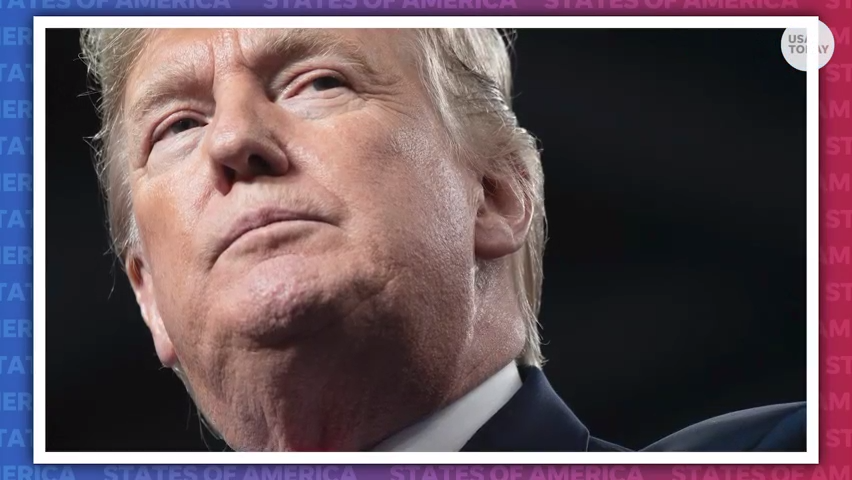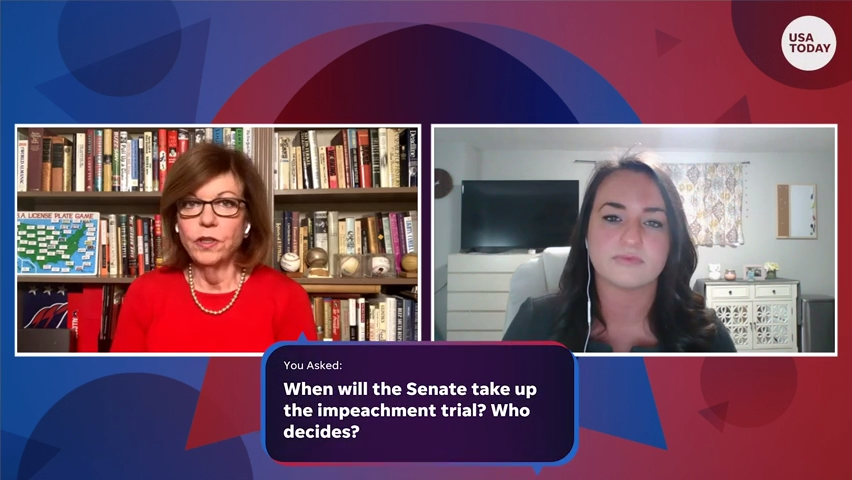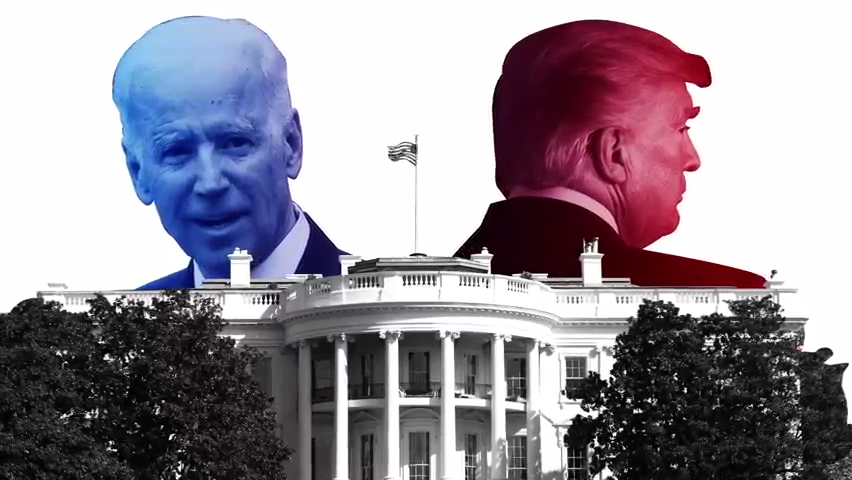Month: January 2021
Trump impeachment: could Trump face more charges after he’s out of office? You asked, we answered
Trump impeachment: Who picks the Senate impeachment trial date? You asked, we answered
The last days of Trump: Abandoned, detested, and as angry as always
On Thursday, the major activity at the White House seemed to be staff members escaping with photographs and statues that very likely were not theirs to take. Inside, many offices are described as empty, due to all those staffers who suddenly began getting concerned that continuing to associate with a twice-impeached instigator of an insurrection might not be good for their resume.
Meanwhile, somewhere inside the maze of empty offices, Donald Trump still lurks, his fingers twitching to send out tweets forever out of reach, his fevered brow unmopped by an absent Hope Hicks, his bellows of impotent rage echoing sweetly, sweetly through the corridors. And if there is one thing that’s getting Trump extra ragey in these final days before he’s escorted from the property, it is any comparison between himself and one Richard M. Nixon.
Especially because the thing that keeps coming up is the one thing that Nixon did right for the nation—resign.
As CNN reports, Trump is spending his days in a tweetless, rally-less, and apparently friendless circle of accusations, impeachment, and plunging poll numbers. As he gets ready to head out the door to the lowest ratings since there have been ratings, the one thing that Trump has made absolutely clear is that he’s not going to emulate the one thing that Nixon did that benefited both the nation and himself. That’s not to say the idea wasn’t discussed by staffers and Cabinet members. It was. However, Trump shot down any possibility that he might depart without being kicked out. So much so that now any mention of the the 37th president has been completely banned.
Trump probably doesn’t want to be reminded that not only did Nixon recognize a losing proposition and walk away before getting impeached, he also managed to keep his popularity high enough to grab a second term before his actions related to Watergate brought everything crashing down. Meanwhile, the same Pew poll shows that the major motivation for many voters in 2020 was the chance to get rid of Trump. A majority felt that Trump had bumbled the response to the coronavirus, and an even larger majority want Trump to simply go away and never be a major figure in U.S. politics again.
Right now, Trump can look out his window and see bunting and signs for "2021 Biden-Harris Inauguration" from stands that have been erected across from the White House. Inside the White House, his sources of comfort are few. Not only has Hicks departed, but Trump is on the outs with Rudy Giuliani and infinitely mad at wingman Mike Pence. It’s hard to find a single White House staffer who hasn’t earned Trump’s scorn over the past few weeks by slipping up and admitting the reality—he lost, and his time is almost up.
Aides have tried to cheer Trump up by asking him to give one last address to the nation, one in which he could list all those accomplishments like giving a massive tax break to billionaires, building 30 miles of wall through a national monument that disrupted irreplaceable cultural sites, killing off 400,000 Americans, and triggering the first invasion of the Capitol since 1814. But even this list of incredible achievements has failed to stir Trump into getting out his Sharpie and jotting down a few last-minute lies.
Instead, Trump is demanding a big sendoff. However, staff are having to work hard to collect enough warm bodies to make it appear that anyone still cares. There’s also the little fact that if Trump waits until the inauguration to depart, he’ll not only be flying on a plane that is no longer Air Force One, but will have to ask Biden’s permission to borrow his jet. Trump hates all of that.
With most of Trump’s Cabinet already departed—some due to last-minute resignations—it will surprise exactly no one if Trump decides to head for Mar-a-Lago while he still doesn’t have to ask someone else for the keys to the plane.
‘They want to take your speech away,’ censorship cry unites Trump supporters and extremists after Capitol attack
How Trump’s 2nd impeachment trial will work — or maybe won’t: Yahoo News Explains
Trump impeachment: after term is over, is there precedent? You asked, we answered.
Schumer, Pelosi grapple with uncertainty and ongoing threats in proceeding to Trump’s Senate trial
The timing of the second impeachment trial of Donald Trump in the Senate remains uncertain as the week closes out. House Speaker Nancy Pelosi was asked in her Friday press conference about when the impeachment article charging Trump with "incitement of insurrection," which was passed in the House on Wednesday, will go to the Senate. She didn't answer.
"Right now, our managers are solemnly and prayerfully preparing for the trial which they will take to the Senate," Pelosi said. "At the same time, we are in transition. With the COVID relief package President-elect Biden announced last night, he is delivering on what he said when he was elected, 'help is on the way.'" What that likely means is soon-to-be Majority Leader Chuck Schumer is still working out how it will proceed in consultation with the transition team for President-elect Joe Biden. Outgoing Majority Leader Mitch McConnell refused this week to work with Schumer to speed up the process and reconvene the Senate ahead of Tuesday's scheduled official session. Everything about this process from this point is novel for the Senate.
Campaign ActionThere's the high level of physical danger surrounding the whole of the Capitol complex after the attack and for Biden's inauguration. There're the two Democratic senators from Georgia, Jon Ossoff and Raphael Warnock, whose election still hasn't been certified; the deadline for that is Jan. 22, though it could happen on Jan. 19, the same day the Senate comes back. This process in these circumstances is entirely new: "Everything we are talking about is being invented out of whole cloth," Democratic Sen. Chris Murphy told The New York Times. "We have never tried a president after they left office. We've never had an insurrection against the Capitol. We've never held a trial while we are confirming a cabinet. All of this is first impression."
But Democrats remain committed to figuring it out. "I can see no reason we cannot find a way with our archaic rules," said Sen. Amy Klobuchar. Working that out, at this moment, seems to look like splitting the Senate sessions, the Times reports. Schumer and McConnell met Thursday, with a "goal … to divide the Senate’s days so the chamber could work on confirming members of Mr. Biden’s cabinet and considering his stimulus package in the morning and then take up the impeachment trial in the afternoon." Until that is nailed down, it's not clear that Pelosi would initiate the process by formally sending the article over to the Senate.
The outcome there is also unclear, and again it depends a lot on McConnell. He's reportedly told associates that he's sick of Trump, supports the impeachment, wants him expunged from the Republican Party, and sees his impeachment as a way to do that. But that's hearsay right now; McConnell hasn't made those statements public. Maybe he's waiting to see if Trump does anything else between now and Wednesday, his last day in Washington. Maybe he's genuinely undecided. But if McConnell votes for conviction, there will very likely be 16 other Republicans joining him.
As of now, Alaska Republican Sen. Lisa Murkowski is the closest to declaring her intent. On Thursday, she said that Trump's words on Jan. 6 "incited violence," which "briefly interfered with the government's ability to ensure a peaceful transfer of power." She continued: "Such unlawful actions cannot go without consequence and the House has responded swiftly, and I believe, appropriately, with impeachment." Others who have suggested they would vote to convince include Sens. Richard Shelby of Alabama, Dan Sullivan of Alaska, Pat Toomey of Pennsylvania, Ben Sasse of Nebraska, and Mitt Romney of Utah. If you had that many, surely Maine's Susan Collins would jump on, unless she's too bitter that Democrats had the effrontery to mount a challenge to her reelection. Again, whether enough decide that Trump has to be cut out of the body politic like a cancer depends much on McConnell.
All those Republicans need to heed Michigan Rep. Peter Meijer, one of the 10 House Republicans to vote to impeach, even at potential physical harm to himself and his family. "I have colleagues who are now traveling with armed escorts, out of the fear for their safety. Many of us are altering our routines, working to get body armor, which is a reimbursable purchase that we can make. … It's sad that we have to get to that point," he said. "But, you know, our expectation is that someone may try to kill us."
However, "I think you have to set that aside," he said. "I don't believe in giving an assassin's veto, an insurrectionist's veto, a heckler's veto. If we let that guide decisions, then you're cowering to the mob. I mean, that's the definition of terrorism—is trying to achieve a political end using violence." How many senators will have that courage?
Timing of Trump trial uncertain as Pelosi gives no clues
WASHINGTON (AP) - House Speaker Nancy Pelosi offered no clues Friday on her plans to send President Donald Trump’s impeachment to the Senate for trial, but made it clear that Democrats intend to move swiftly on Joe Biden’s legislative priorities, including funding for coronavirus vaccines and relief aid.
Pelosi said ...
Senate Dems eye punishing Hawley and Cruz for election objections
Democrats stepping into the Senate majority this month are weighing stiff penalties for Republican Sens. Josh Hawley and Ted Cruz over their objections to the 2020 presidential election results.
Hawley (R-Mo.) and Cruz (R-Texas) spearheaded objections to Pennsylvania’s Electoral College votes even after a pro-Trump mob stormed the Capitol demanding that the election be overturned, prompting Democrats to accuse them of inciting violence for political gain — claims the senators have vigorously denied.
The House impeached President Donald Trump earlier this week for inciting the deadly insurrection at the Capitol, and Democrats argue that Hawley and Cruz should face similar consequences. Some have called on them to resign or be expelled from the Senate altogether, which is unlikely to happen; but others are coalescing around an official rebuke in the form of a censure.
Sen. Chris Murphy (D-Conn.) this week joined the growing calls for Hawley and Cruz to be censured, but said the penalties under consideration should also extend to the six other GOP senators who joined them in objecting to the election results, including Sens. Rick Scott of Florida and Tommy Tuberville of Alabama. Even though the others were less vocal about their objections, Murphy said they were all “legitimizing this view amongst the crowd [of rioters] that Congress had the power to overturn the election.”
“If it really was only the two of them, maybe the unreasonable expectation that all these rioters had would have been dampened,” Murphy said, adding: “So I also don’t love the idea that all of the shame is being targeted to just those two senators. I think everybody who signed onto that letter deserves blame as well.”
Some Democrats have gone even further. Sen. Sherrod Brown (D-Ohio) said the pair should resign and that if they don’t, the Senate should expel them from the chamber, adding that they “have betrayed their oaths of office and abetted a violent insurrection on our democracy.” Even Sen. Chris Coons of Delaware, a centrist Democrat who works closely with Republicans, called on Hawley and Cruz to step down.
Sen. Ron Wyden (D-Ore.) was even more direct, accusing them of trying to “foment a violent mob for personal gain.”
The push for consequences comes as the Senate is about to kick off Trump’s second impeachment trial and begin processing President-elect Joe Biden’s Cabinet nominees as well as his Covid-19 relief plan.
A spokesman for incoming Senate Majority Leader Chuck Schumer (D-N.Y.) declined to comment on what Democrats might pursue as punishment for the two GOP senators once they take control of the chamber later this month, though several options remain on the table.
Amid the backlash, Hawley and Cruz are doubling down on their objections and their rhetoric leading up to the violent riots at the Capitol, which resulted in the deaths of five people including a police officer.
Cruz told POLITICO last week that he was simply seeking a debate on the Senate floor, and that “what I was doing was the exact opposite of inciting violence.” Hawley penned an op-ed this week stating that he maintained his objections even after the riots at the Capitol because “I will not bow to a lawless mob, or allow criminals to drown out the legitimate concerns of my constituents.”
Still, their fellow Republicans viewed the senators’ election objections as more of a bid to cater to the GOP base with Trump on his way out, and position themselves for presidential runs in 2024. Senate Majority Leader Mitch McConnell (R-Ky.) opposed their efforts and had tried to persuade members of the GOP Conference to vote to certify the election results, in part to avoid putting senators facing re-election in 2022 in a difficult spot.
Sen. Mitt Romney (R-Utah) said the group of senators who objected “will forever be seen as being complicit in an unprecedented attack on our democracy,” while Sen. Ben Sasse (R-Neb.) described Hawley’s conduct as “really dumbass.”
But most Republicans aren’t likely to back a formal condemnation on the Senate floor.
“I think it’d be a partisan exercise,” said a GOP senator who was granted anonymity to candidly assess the situation. “They appear to be getting de facto censured out in the public.”
Even if Democrats opt against a formal penalty, they could still charge the Senate Ethics Committee with investigating Hawley and Cruz. Additionally, several Democratic senators have already said they don’t intend to work with the pair again on legislation. Hawley, for example, has partnered with Democrats on his push for stimulus checks.
“I won’t work with those Republicans,” Sen. Tina Smith (D-Minn.) said bluntly. “However, it’s important to remember that there are many, many a majority in the Senate of Republicans who I work with on a daily basis, and I will continue to do that.”
And independent of congressional action, both senators have already faced significant blowback. Simon & Schuster canceled publication of Hawley’s forthcoming book, and Cruz’s communications director resigned.
Moreover, former aides to Sen. Claire McCaskill (D-Mo.), whom Hawley defeated in 2018, launched a super PAC aimed at blocking Hawley’s ambitions for higher office or for re-election to his Senate seat. And former Sen. John Danforth (R-Mo.), Hawley’s mentor, renounced his support and said his effort to help groom Hawley for public office “was the biggest mistake I’ve ever made in my life.”
Burgess Everett and Marianne LeVine contributed to this report.



